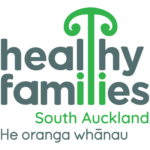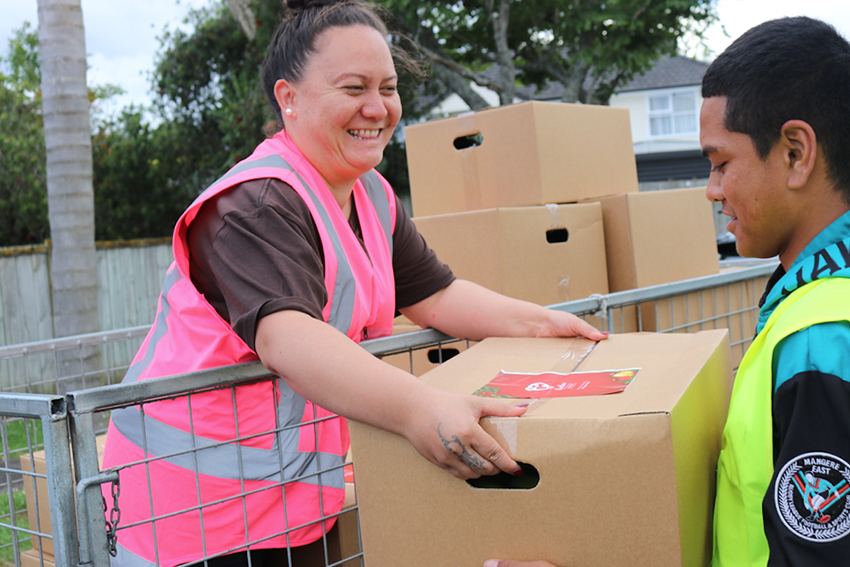
Merry Christmas!
The team at Healthy Families Manukau, Manurewa-Papakura would like to wish our community of South Auckland a safe and joyful Christmas and New Year season. This year we have collaborated on many fantastic initiatives supporting health and wellbeing in the places we live, learn, work and play. We look forward to working with more community champions in 2019.
Some of our highlights:
Champions Papatūānuku Kōkiri Marae in Māngere adopted a pro-water approach this year, supporting their whanau to make water the easiest and most accessible drink while at the marae and in the maara (garden). Having already done away with ‘fizzy drinks’, this was the next step in helping to foster a health-promoting environment and add to their commitment of being a parakore (zero waste) and kai oranga (healthy, organic kai) marae in South Auckland.
“These things contribute to total wellness, and if you have it all in a one-stop marae then you create the korowai or orangatanga (wellbeing),” Valerie Teraitua, Papatūānuku Kōkiri Marae.
Māngere College also took a lead in their community around wai with the school’s Health Council mobilising teachers and fellow students to make water the first-choice drink at school. Alongside a monthly water only day, the students also made a Pro Water video and created posters and activities to encourage water as the first and easiest choice.
“I think starting a Pro Water policy in our school could really affect [students and staff here] and their families outside of the school so they can take that into their everyday lives and decrease the statistics around diabetes in our community,” Olathe, student.
A significant step in the Healthy Families Manukau, Manurewa-Papakura Business Community of Practice partnership with major New Zealand corporates, was the release of findings around the health and wellbeing of shift workers in South Auckland. The innovative approach brought employees and employers together in a unique design challenge to look at what constitutes a healthy workplace. Collaborating with major corporates like Air New Zealand, Bidfood, Chep NZ, Fonterra, Frucor Suntory NZ, Goodman Fielder, Manukau Institute of Technology, Rinnai NZ, Spotless and The Warehouse Group, the collective uncovered key insights. In particular we found the nature of shift work impacts workers’ ability to maintain social, community or faith-based commitments and sleep deprivation influences their mood and ability to function. And while family is consistently the highest priority for shift workers, and often the financial driver, shift work itself can compromise family dynamics.
The challenge saw the creation of a number of prototypes to help improve the health and wellbeing of shift workers and throughout the year Healthy Families Manukau, Manurewa-Papakura began testing a couple with two of the businesses in the collective, with a review of their success taking place in 2019.
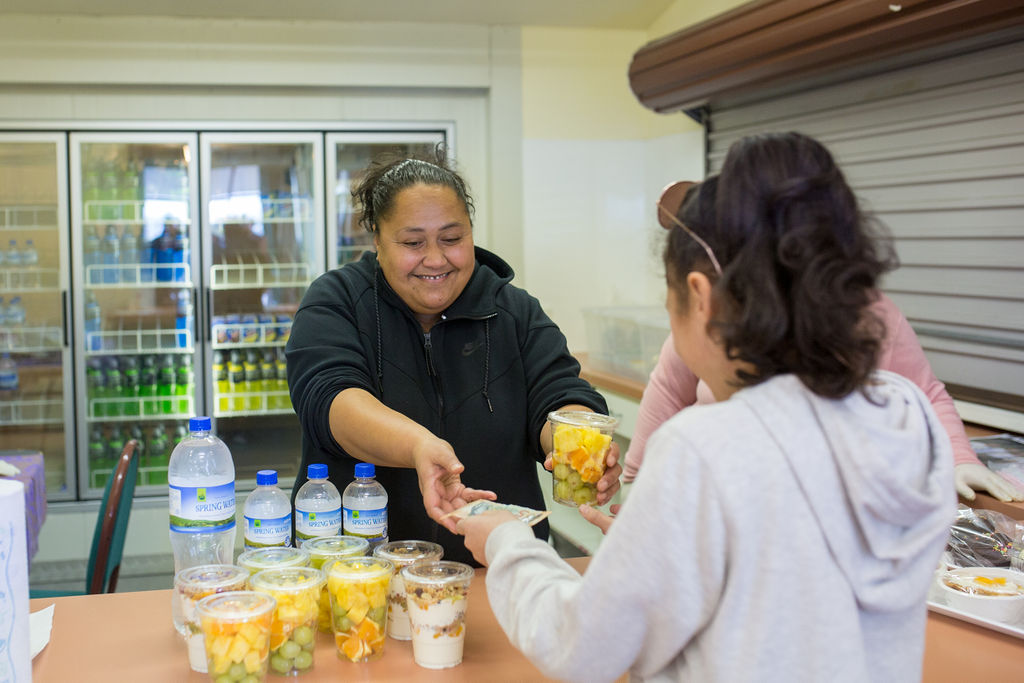
During the 2018 netball season, Papakura Netball Centre successfully trialled a new approach to their tuck shop and cafeteria offerings. With more than 3,000 people going through the centre each week during the netball season, they partnered with the Cook Islands Development Agency New Zealand’s (CIDANZ) One Basket initiative to drive healthy changes in food and drink at their centre and, support local enterprise. Over the year, the centre introduced sandwiches, fruit salads and sushi, and saw a significant change in the uptake of healthier foods. They also saw a huge reduction in the stock of soft drinks and, in turn, an increased uptake of water and juice.
“I wanted us to walk the talk,” shares Centre General Manager, Briar Martindale. “We have our community’s best interest at heart and, in a small way, we can contribute towards the encouragement of healthy lifestyles. Healthy eating goes hand in hand with sport in general. By promoting what good nutrition looks like, how food fuels the body and, what fuel the body needs in order to perform at top level, we are helping our women and girls reach their potential.”
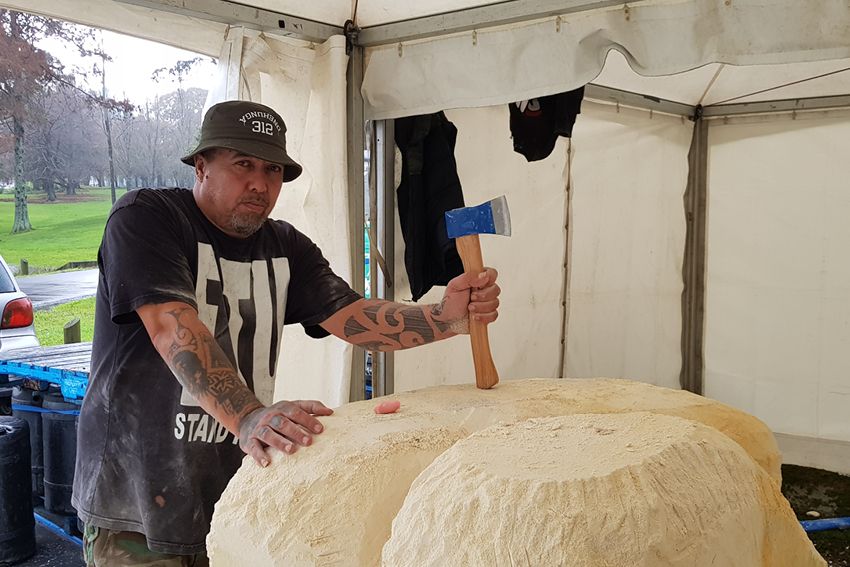
More than 500 people participated in the Te Mata o Rehua placemaking and food systems initiative in June, in Manukau City. Aligning with Matariki, signifying the first month of the Māori lunar calendar, the week-long prototype was made up of a carving symposium and culturally-inspired market, created in partnership with Panuku Placemaking South and The Southern Initiative. It combined indigenous storytelling and systems, with local food culture. At Healthy Families Manukau, Manurewa-Papakura our goal is to provide the tools in support of a localised maramataka eco-system which leverages ancestral practices to inform community-level solutions and foster health and wellbeing. This project was part of our wider strategic intent to lift Māori wellbeing in Manukau and, its surrounds.
With Māori systems return making up an important part of our work, this year also saw the progression of the Te Pu a Nga Maara collective, a partnership between The Southern Initiatives, Department of Conservation, Healthy Families Manukau, Manurewa-Papakura and Papatūānuku Kōkiri, Makaurau and Manurewa Marae. Underpinned by the needs and aspirations of each marae, this year the collective had a focus on rangatahi (youth) exploring mātauranga Māori and maramataka in urban spaces and placemaking activities.
“Māori and many other Pacific societies are reviving and reconnecting with their ancestral lunar calendars to restore wisdom of agricultural productivity, marine and forest gathering, resource management, health, healing and daily practices that provide sustenance for the wellbeing of communities,” Mason Ngawhika, Healthy Families Manukau, Manurewa-Papakura.
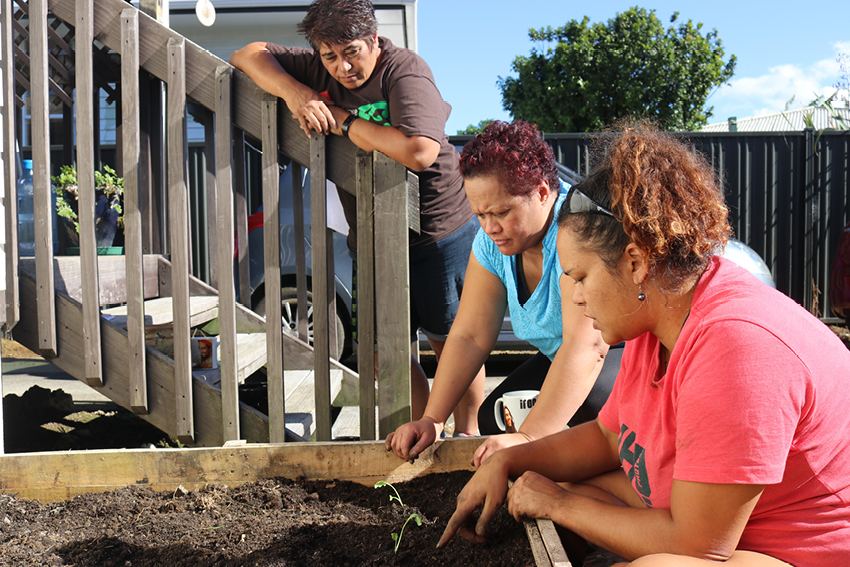
Food sovereignty has been a strong focus in our work this year. In our One Love Māngere initiative, more than 50 families have started their own backyard boxed gardens and are now into their third planting season, harvesting a myriad of crops from taro and herbs, to cruciferous vegetables. Workshops have supported growing proficiency and self-sufficiency, enabling families to create their own health-promoting food environments. By supporting champions to build a local environment where produce is coming from people’s backyards, it is reducing reliance on the commercial food industry. With more than 120 takeaway and liquor outlets within a 3km radius of the One Love neighbourhood, the initiative is beginning to impact Māngere’s food eco-system.
In this space we also worked across 26 Early Childhood Centres (ECE) in Otara and Papatoetoe as a part of a new initiative to mobilise and sustain health promotion within their preschools. East-Tamaki based ECE Fetu-I-Sasa’e Aoga Amata was one of the success stories with the preschool having used bokashi compost and growing vegetables for over two-years. Upon joining the HFMMP initiative, the ECE has been able to connect, learn and gain support from others in the area, creating a community of practice and peer-to-peer learning.
“The good thing that has come out of this co-design work is that the pre-schools weren’t aware of how well they were doing and how much of a difference they were actually making in the schools,” says Amio Ikihele, Healthy Families Manukau, Manurewa-Papakura. “[Now they are] trading phone numbers, ideas, networking, sharing information and knowledge.”
